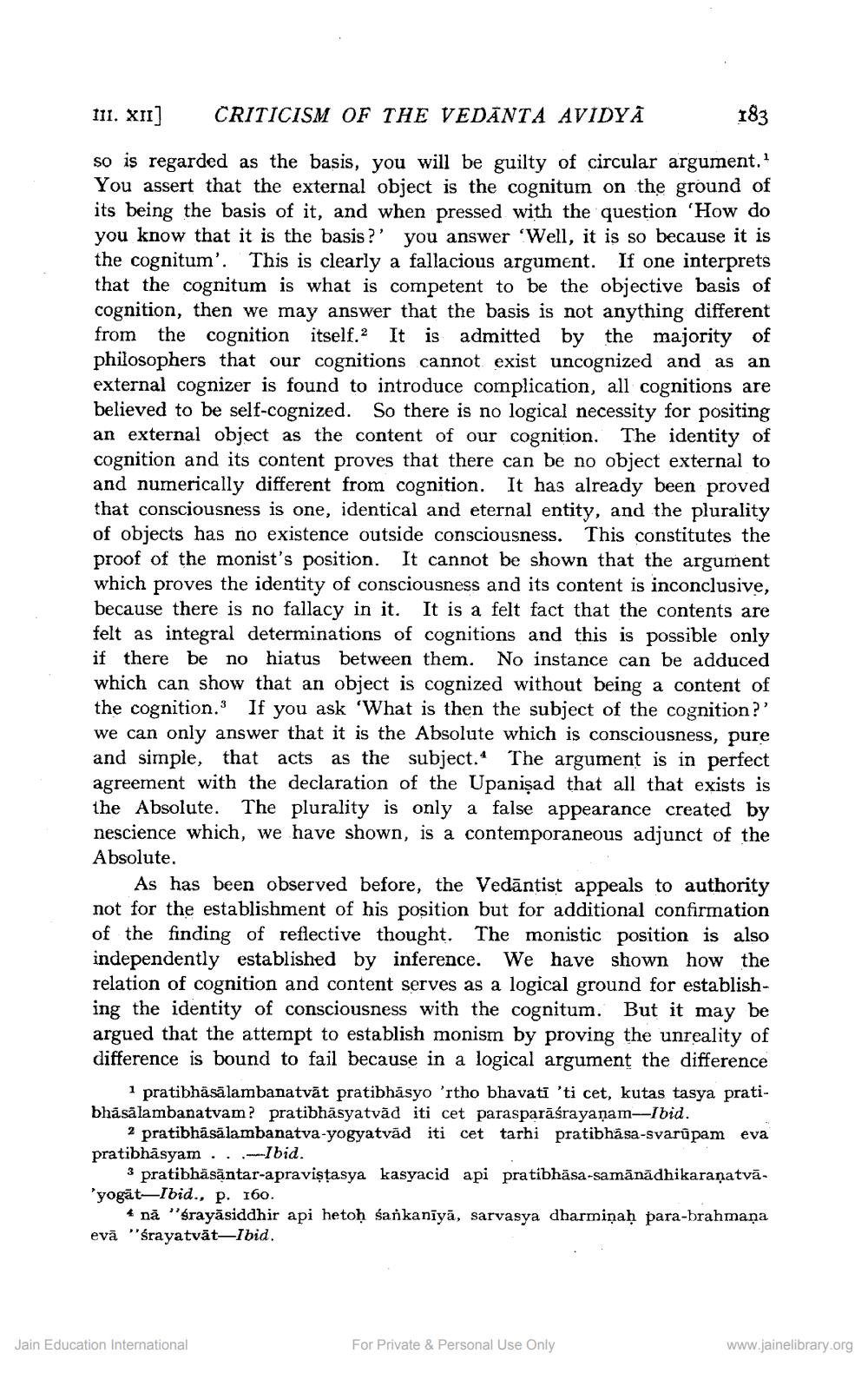________________
III. XII]
CRITICISM OF THE VEDANTA AVIDYA
so is regarded as the basis, you will be guilty of circular argument. You assert that the external object is the cognitum on the ground of its being the basis of it, and when pressed with the question 'How do you know that it is the basis?' you answer 'Well, it is so because it is the cognitum'. This is clearly a fallacious argument. If one interprets that the cognitum is what is competent to be the objective basis of cognition, then we may answer that the basis is not anything different from the cognition itself. It is admitted by the majority of philosophers that our cognitions cannot exist uncognized and as an external cognizer is found to introduce complication, all cognitions are believed to be self-cognized. So there is no logical necessity for positing an external object as the content of our cognition. The identity of cognition and its content proves that there can be no object external to and numerically different from cognition. It has already been proved that consciousness is one, identical and eternal entity, and the plurality of objects has no existence outside consciousness. This constitutes the proof of the monist's position. It cannot be shown that the argument which proves the identity of consciousness and its content is inconclusive, because there is no fallacy in it. It is a felt fact that the contents are felt as integral determinations of cognitions and this is possible only if there be no hiatus between them. No instance can be adduced which can show that an object is cognized without being a content of the cognition. If you ask 'What is then the subject of the cognition?' we can only answer that it is the Absolute which is consciousness, pure and simple, that acts as the subject. The argument is in perfect agreement with the declaration of the Upanisad that all that exists is the Absolute. The plurality is only a false appearance created by nescience which, we have shown, is a contemporaneous adjunct of the Absolute.
183
As has been observed before, the Vedantist appeals to authority not for the establishment of his position but for additional confirmation of the finding of reflective thought. The monistic position is also independently established by inference. We have shown how the relation of cognition and content serves as a logical ground for establishing the identity of consciousness with the cognitum. But it may be argued that the attempt to establish monism by proving the unreality of difference is bound to fail because in a logical argument the difference
1
1 pratibhāsālambanatvāt pratibhasyo 'rtho bhavati 'ti cet, kutas tasya pratibhāsālambanatvam? pratibhasyatvăd iti cet parasparāśrayanam-Ibid.
2 pratibhāsālambanatva-yogyatvad iti cet tarhi pratibhasa-svarūpam eva pratibhasyam. Ibid.
Jain Education International
3 pratibhasantar-apraviṣṭasya kasyacid api pratibhasa-samānādhikaraṇatvā'yogat-Ibid., p. 160.
* nā "érayāsiddhir api hetoḥ śankanīyā, sarvasya dharmiṇaḥ para-brahmana eva "śrayatvāt-Ibid.
For Private & Personal Use Only
www.jainelibrary.org




